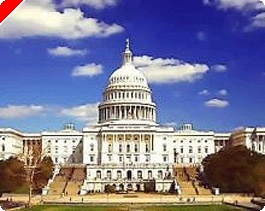House Hearing Examines Burdensome UIGEA Regulations

On Wednesday morning, a subcommittee of the House Financial Services Committee convened to discuss "Proposed UIGEA Regulations: Burden without Benefit?" The hearing came as federal regulators continue to consider comments made to the proposed regulations of the Unlawful Internet Gambling Enforcement Act of 2006 in their effort to finalize those regulations and implement the Act.
The hearing featured two panels of witnesses. The first was comprised of representatives of the Board of Governors of the Federal Reserve System and the Department of Treasury, the entities charged with authoring and finalizing regulations for the UIGEA. The second panel featured representatives from different sectors of the American payments system.
Before the witnesses spoke, various members of the Financial Services Committee weighed in on the UIGEA and its current status. Ranking member Spencer Bachus (R-AL) reiterated his support of the Act as a necessary response to what he believes to be the destructive effects of online gambling. Committee Chairman Barney Frank (D-MA) then clarified that while the issue of whether or not online gambling needs to be regulated is certainly worth arguing, the primary focus of the hearing concerned the practicality of the UIGEA's enforcement.
Louise Roseman, Director of the Division of Reserve Bank Operations and Payment Systems which oversees the policies and operations of the Federal Reserve Banks, was the first witness to testify. Roseman spoke of how those who commented on the proposed regulations "highlighted a number of limitations in using the payment system to combat unlawful internet gambling activity," most particularly the regulations' "lack of clarity" about which activites were prohibited. She stressed that while regulators "were considering modifications" to the Act that would provide clarity, their "ability to provide complete certainty is limited given the ambiguities of the underlying statues." Roseman went on to address the concerns of banks and other financial institutions regarding the burden of having themselves to identify restricted transactions, as well as the further complication caused by the fact that many online gambling operations exist in other countries and are thus beyond the U.S.'s legal purview.
Ms. Valerie Abend, Deputy Assistant Secretary for Critical Infrastructure Protection and Compliance Policy of the U.S. Department of Treasury, was the next to speak. Abend echoed Roseman's observations about the current status of the regulators' efforts to finalize the UIGEA, as well as some of her points about still-present ambiguities or difficulties. "No final decisions have been made regarding any aspect of the final rule or the comments provided," said Abend. "We are committed to giving fair consideration to all relevant comments as we are working toward promulgation of a final rule."
The witnesses then fielded committee members' questions, most of which highlighted various examples of vagueness in the original Act and in the proposed regulations. After one exchange illustrating the difficulties banks faced when trying to determine what activities were to be prohibited, Chairman Frank suggested that the UIGEA, designed to eliminate online gambling, actually was forcing banks to "gamble" (so to speak) on whether or not they should block certain transactions. Kenny Marchant (R-TX) asked whether the finalized law would contain a clear definition of "unlawful internet gambling." Roseman answered that she could not be certain there would be. "The challenge we have is interpreting something," she explained, "that Congress itself isn't sure what they mean."
Another issue receiving attention during the discussion was the fact that neither the UIGEA nor the proposed regulations identify particular sites or businesses as forbidden. Rep. Bachus challenged the witnesses' assertion that creating such a list would be unfeasible, citing other examples of such lists that had been created in response to other legislation. Roseman explained that the problem here stemmed from the fact that the UIGEA restricted certain activities, but not specific parties. Thus, in the case of a site that directed only a percentage of its payments toward unlawful internet gambling activities, only those prohibited transactions could be restricted, thereby making it impractical to create a list of "bad actors" whose every transaction could be blocked.
Poker was discussed briefly at the hearing when Robert Wexler (D-FL), author of the Skill Game Protection Act (H.R. 2610), suggested the UIGEA should not apply to games of skill. Roseman noted that among the 200-plus comments they had received, many had come from poker players offering similar arguments. However, as Roseman explained, the Department of Justice did consider poker "a game subject to chance" and therefore covered by the UIGEA.
After a short recess, a second panel of witnesses appeared to testify. The second group was comprised of various representatives of the American payments system. Harriet May, CEO of a Texas credit union, spoke first on behalf of the Credit Union National Association. She was followed by Wayne Abernathy, Executive Vice President of the American Banking Association; Leigh Williams, President of BITS, a finanical service industry consortium and division of the Financial Services Roundtable; and Ted Teruo Kitado of Wells Fargo & Co.
All four witnesses from the second panel expressed concerns about the undue burden the UIGEA placed on the American payments system. Abernathy called the UIGEA "an unprecedented delegation of governmental responsibility, with no prospect of practical success." All four also suggested the Act could not be followed unless it contained more specific guidelines regarding unlawful internet gambling.
During the questioning period, presidential hopeful Ron Paul (R-TX) asked about the potential cost of the banks' implementing the Act. Both Abernathy and Williams pointed out that the cost would be prohibitive, but hard to calculate given the law's numerous uncertainties.
In closing the proceedings, Rep. Gutierrez noted how the hearing had demonstrated in a comprehensive fashion the many serious problems those finalizing the UIGEA regulations still needed to address. He also reflected on the fact that while he and his colleagues may disagree about the need to prevent online gambling, many nevertheless appeared to share the view that the law in its current form created more burdens than benefits.








